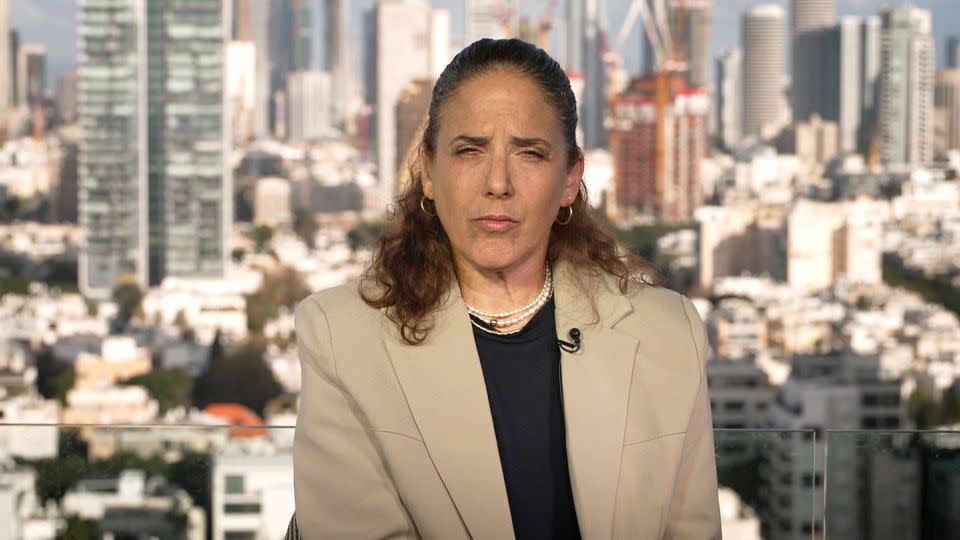‘We were not allowed to cry:’ Released Israeli hostage describes the ‘hell’ of being held in Gaza
An Israeli woman taken hostage by Hamas in Gaza has described the “hell” of being held captive, after her husband and daughter were murdered, telling CNN her captors would not allow her surviving young children to cry and tried to convince them they “had been forgotten.”
Chen Almog Goldstein, who was kidnapped with her surviving children during Hamas’ October 7 attacks on Israel, said they were held in tunnels and an apartment in Gaza until their release after 51 days.
“They humiliated us, sometimes mocking us,” she told CNN’s Christiane Amanpour. “They told us that we had been forgotten, that the only important thing for Israel was fighting.
“We were not allowed to cry, they wanted us to be happy … If we cried, we had to snap out of it or hide it,” she said. “It’s a kind of emotional abuse that they didn’t let us cry.”
Almog Goldstein witnessed her husband Nadav and her oldest daughter Yam murdered by Hamas gunmen, who broke into their home near the border with Gaza on October 7.
“I took Yam’s large teddy bear, the size of a human, and put it on top of us to protect us from the shooting,” she told Amanpour. “Within a few seconds, five of them came into the safe room, screaming, (and) as I turned around Nadav was shot in the chest, point blank.”
Moments later her daughter was shot in the face, and Almog Goldstein was bundled into a family car along with her three surviving children, and driven across the border. She recalled the two Hamas militants in the car taking selfies as they drove back to Gaza.
Hamas’ attacks on October 7 killed around 1,200 Israelis, with more than 200 people taken back to Gaza as hostages. Israel believes that 99 people are still being held in Gaza, along with the bodies of 31 dead hostages.
Almog Goldstein and her surviving children were released in late November, as part of a swap for Palestinian prisoners in Israel during a four-day truce in the war.
While in captivity, she said the family survived on little water and food each day. “They tried to provide us with food. There was more in the beginning, but there was less later,” she said.
She said they feared they would be killed either by their captors or in the “incredible bombardment” on Gaza by Israeli forces.
And she described intense supervision by the family’s captors. “Agam used to sit down and stare, and they would say, what are you staring at? What are you thinking? There was no personal space.”

“You need to understand they took our identity; it was extremely difficult for us.”
“They talked to us about Gilad Shalit [the captured soldier held by Hamas for five years] and laughed,” she said. “They told us that we had been forgotten, that the only important thing for Israel was fighting.”
Almog Goldstein said she and her children discussed religion with their captors and tried to keep the relationship amicable. “Sometimes we saw them crying, worried about their wives, and writing letters to their wives.”
She urged the release of the remaining hostages, asking Amanpour: “(Are) we, as a society and the world, doing everything for them? I can testify that it is hell there.”
More than 30,000 people have died in Gaza since Israel waged war against Hamas five months ago, but recent efforts to bring about a ceasefire that would allow the release of the remaining hostages have been frustrated.
On Thursday two American officials agreed that the prospects are not promising of Israel and Hamas agreeing to a temporary truce by the start of Ramadan early next week. “Hope is fading,” one US official said.
For more CNN news and newsletters create an account at CNN.com

 Yahoo News
Yahoo News 
